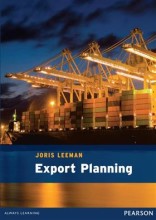Summary: Economics | 9781844808700 | N Gregory Mankiw, et al
- This + 400k other summaries
- A unique study and practice tool
- Never study anything twice again
- Get the grades you hope for
- 100% sure, 100% understanding
Read the summary and the most important questions on Economics | 9781844808700 | N. Gregory Mankiw and Mark P. Taylor.
-
1 Chapter 23
This is a preview. There are 6 more flashcards available for chapter 1
Show more cards here -
the four components of GDP
consumption (spending by households on goods)
investment (purchase of goods to use in future to produce more)
government purchases (spending on goods and services by local and national governments)
net exports (purchase of domestically produced goods by foreigners- exports, minus the domestic purchases of foreign goods)
-
Availability of Close Substitutes
tend to
have more elastic demand because it is easier for consumers to switch from that good to others. For example, butter and margarine are easily substitutable. A
small increase in the price of butter, assuming the price of margarine is held
fixed, causes the quantity of butter sold to fall by a relatively large amount. By
contrast, because eggs are a food without a close substitute, the demand for
eggs is less elastic than the demand for butter. -
why must income equal expenditure
Because every transaction has a buyer and seller so they seller makes what the buyer spends
-
3 chapter 25
This is a preview. There are 2 more flashcards available for chapter 3
Show more cards here -
four determinants of productivity
Physical capital (stock of equipment and structures that are used to produce goods and services)
Human capital ( knowledge and skills that workers acquire through education and experience)
Natural resources (inputs to production of goods and services provided by nature such as land and rivers)
technological knowledge (society's understanding of the best ways to produce goods and services)
-
4 chapter 26
This is a preview. There are 3 more flashcards available for chapter 4
Show more cards here -
Nominal saving, private saving, public saving
nominal saving- total income in the economy that remains after paying for consumption and government purchases.
private saving-amount of income that households have left after paying for taxes and consumption
Public saving-tax revenue (income) that the government has left after paying for its spending.
-
credit default swaps
help reduce the risk involved in buying bonds because the buyer is guaranteed to be restored to original position in case the bond defaults (so if the money cannot be repaid by the company one bought a bond from)
-
6 Supply, Demand and Government Policies
This is a preview. There are 23 more flashcards available for chapter 6
Show more cards here -
Shortly explain the effects of a binding price ceiling on market outcomes.
A binding price ceiling forces the price of a good down. A lower price means that producers find it less attractive to supply the good. Therefore, quantity demanded is higher than quantity supplied of a good, a.k.a. shortage. This leads to rationing mechanisms. -
Shortly explain the effects of a binding price floor on market outcomes.
A binding price floor forces the price of a good up. A higher price means that consumers find it less attractive to buy the good. Therefore, quantity supplied is higher than quantity demanded of a good, a.k.a. surplus. This leads to unsold inventory. -
Draw a graph explaining the effects of tax on the market when levied on producers.
Supply decreases, supply curve shifts to the left. This leads to a fall in quantity supplied. Buyers pay a higher price and sellers earn less revenue. -
Give an example of a price ceiling.
Rent control. The shortage is called no housing.
- Higher grades + faster learning
- Never study anything twice
- 100% sure, 100% understanding

































